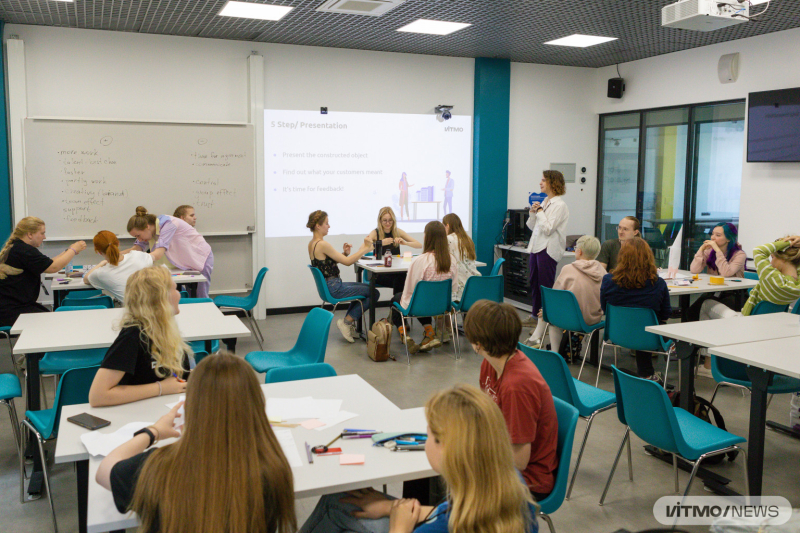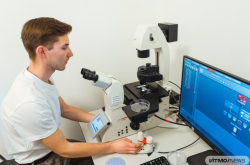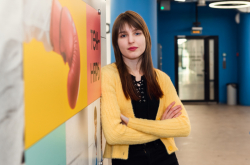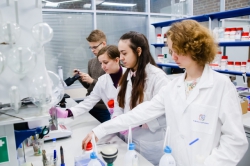About SWW
The SCAMT Workshop Week is a school organized by the SCAMT Institute, where students get to join a project of their choice and attend lectures from ITMO lecturers and guest experts. Among the topics covered by the school are not only fundamental studies in genomics, biotechnologies, and chemistry, but also cutting-edge research tools, such as AI, big data, and computer modeling. Some of the invited lecturers are international experts, such as ITMO’s youngest PI Ahmed Eldeeb.
Read also:
ITMO Fellow Ahmed Eldeeb on Working in Russia and Becoming a PI at 28
Additionally, participants attend workshops in soft skills, polishing their public speaking, teamwork, or presentation competencies.
Since 2019 the schools have been held completely in English, making the course accessible to international participants. For instance, the latest edition of SCAMT Workshop Week welcomed students from Finland (University of Turku), Moldova, Belarus (Belarusian State University), as well as ITMO students from Syria.
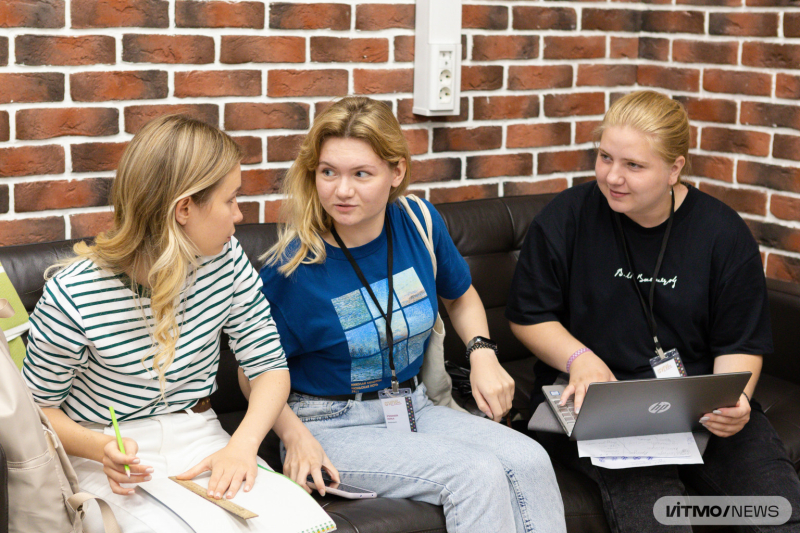
SCAMT Workshop Week 2023. Photo by Dmitry Grigoryev / ITMO.NEWS
Opportunities for participating students
A highly popular opportunity for the workshop’s participants is the chance to enter one of the four SCAMT-curated Master’s programs without exams: Applied Genomics, Molecular Biology and Biotechnology, Chemistry and AI, and Sustainable Chemistry for Energy Technologies. Over 80 students have made avail of this option between 2019 and 2022. In 2023, 13 workshop participants, including a student from the University of Turku, were admitted to ITMO.
Moreover, participants now can publish a research paper covering the results of their work at the school. Last but not least, participating students get to intern at one of SCAMT’s laboratories or continue developing their project as a Master’s student while officially employed at ITMO.
Read also:
SCAMT Workshop Week: Implement Your Project and Enroll Into Master’s at ITMO Without Exams
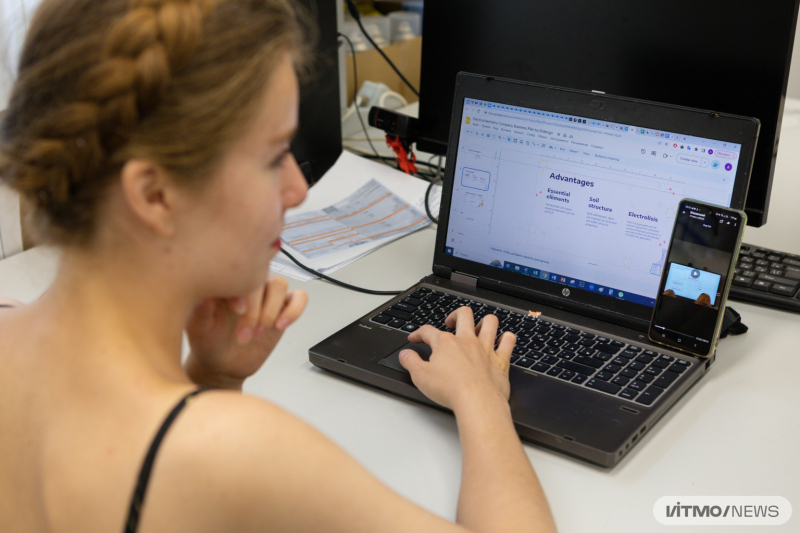
SCAMT Workshop Week 2023. Photo by Dmitry Grigoryev / ITMO.NEWS
Student projects
Participants could choose one of 12 projects in 3 tracks: experimental, digital and industrial.
Within the experimental track, participants attend SCAMT laboratories to work with reagents, conduct experiments, and operate special equipment, the latter being a special feature of the school.
This track contains some of the workshop’s most coveted projects: DNA-machines: the Ultimate Cancer Killers (72 applications, 9 participants selected); DNA nanomachines for molecular diagnostics (57 applications, 3 participants selected); and Overcoming the resistance to CDK4/6 inhibitors in breast cancer (56 applications, 4 participants selected).
Also in this track were projects devoted to protective holograms made from fluorescent nanomaterials (liquid metals based on a sodium-potassium alloy) and 3D printing of fluorescent materials based on carbon dots and cellulose nanocrystals.
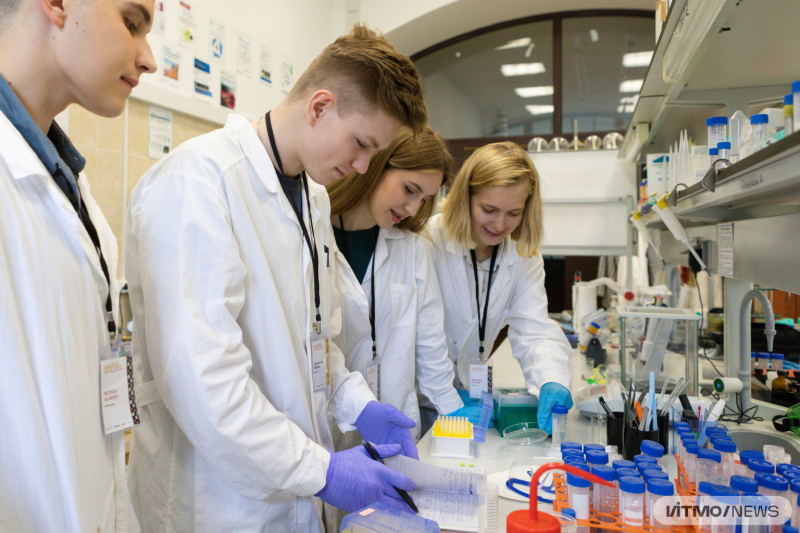
SCAMT Workshop Week 2023. Photo by Dmitry Grigoryev / ITMO.NEWS
The digital track is all about AI and machine learning applications in chemistry and biology. For instance, this year, among the suggested projects were computer modeling-based design of pharmaceuticals and an algorithm that converts descriptions of nanomaterials into images.
Every aspect of making an innovative product in chemistry or biotechnologies – that’s what students get to work on within the industrial track. Afterwards, they will get to implement all the acquired skills in their own startups or as part of an existing team at SCAMT (some of the participants were invited to continue their projects as members of staff).
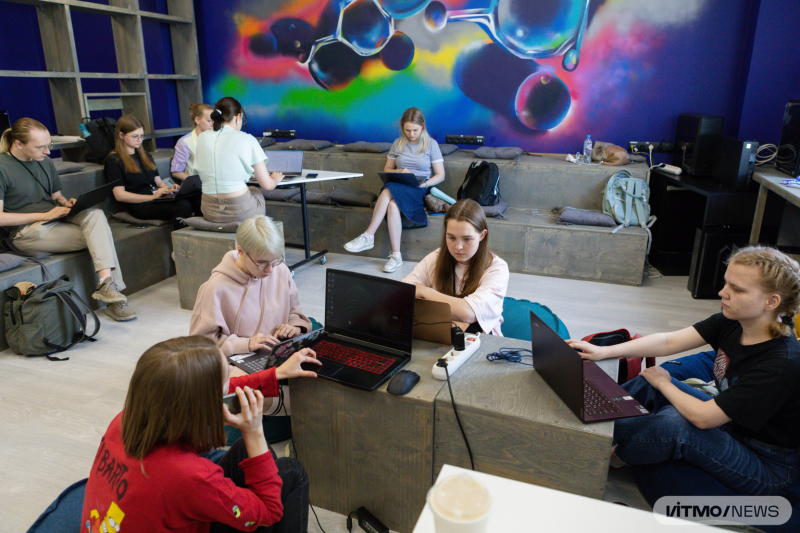
SCAMT Workshop Week 2023. Photo by Dmitry Grigoryev / ITMO.NEWS
There was a total of two industrial projects: NeoPatches made from hybrid bacterial cellulose material that can be used in medicine, packaging, or artificial skin; and new commercial products from lignin, a polymer compound found in vascular plants and some algae, that can be used to create more sustainable rubber and plastic.
Student experiences
Regina Kukarskaya, University of Turku (Finland)
Project: DNA-machines: the Ultimate Cancer Killers
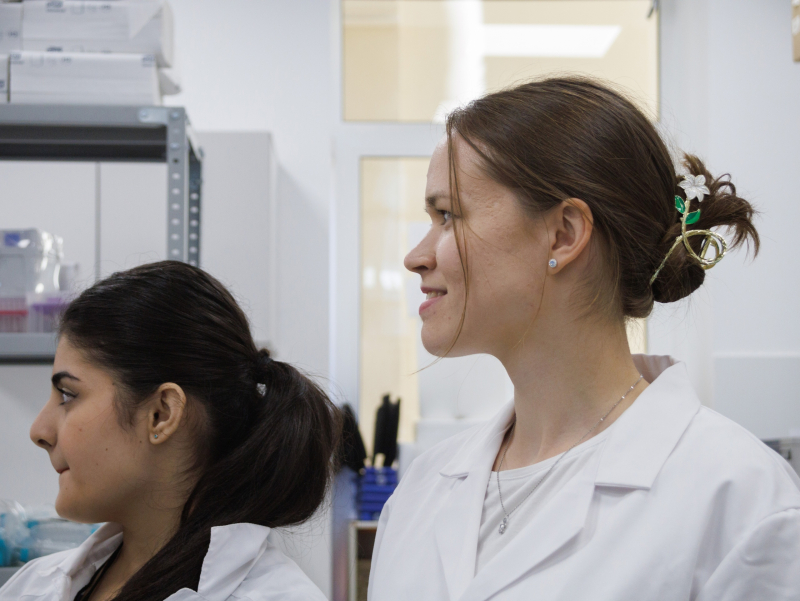
Regina Kukarskaya. Photo by Yulia Nagovitsyna
I came to this workshop because I wanted to get to know ITMO and SCAMT better – and luckily the reality has matched my expectations. It was great to collaborate with curators from the Gene-Therapeutic Agents Based on Nucleic Acids lab and learn some of the new techniques so perfectly explained by the lecturers. Our team comprised students with very different backgrounds, so we exchanged ideas and approaches, which helped us improve the result of our work.
Veronika Karpushenkova, Belarusian State University
Project: Text-to-Image generation of nanoparticle microphotographs
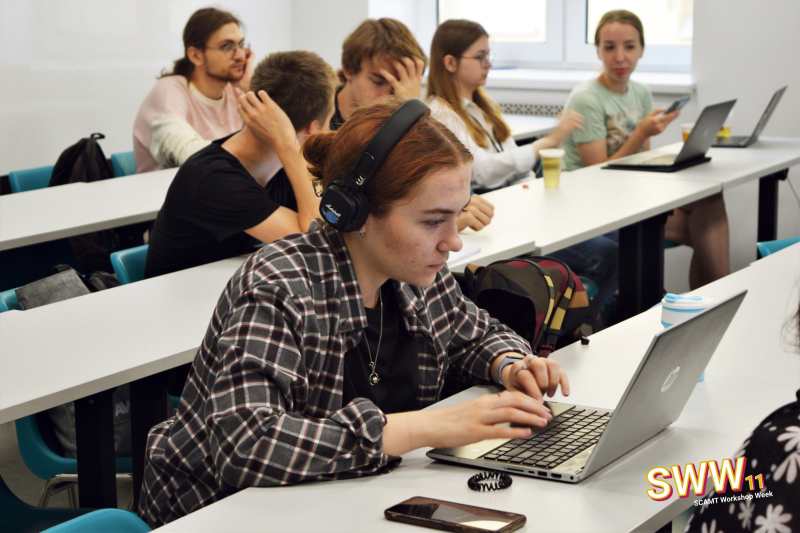
Veronika Karpushenkova. Photo by Yulia Nagovitsyna
As I am currently choosing my future Master’s program, I thought that this workshop would be a great chance for me to not only gain new experience but also get into my next degree without exams. In our project, we generated images from texts, which was a new task for me, so I have learned a lot. What’s cool is that ITMO provides students with all the necessary equipment, as well as modern labs and coworking spaces.
Alexey Konoplyov, Lomonosov Moscow State University
Project: Encode the battery
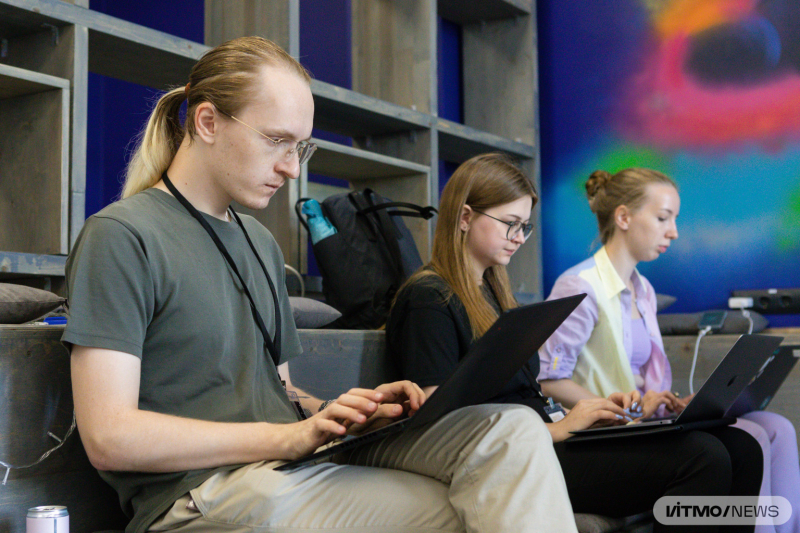
Alexey Konoplyov. Photo by Dmitry Grigoryev / ITMO.NEWS
A friend told me about SWW three years ago, but I ventured to apply only this year. Initially, I believed that I’d have to work really hard on the project that I chose, but our curator explained everything really well, so it wasn’t such a challenge after all. Everything the workshop offered, from lectures to project work and extracurricular activities, was very interesting. I received my introduction to machine learning, which I will now be using in my own projects. Next, I’d love to focus on predictive modeling.
Sofia Dmitrienko, Siberian Federal University
Project: NeoPatches: development of cellulose patches for commercialization
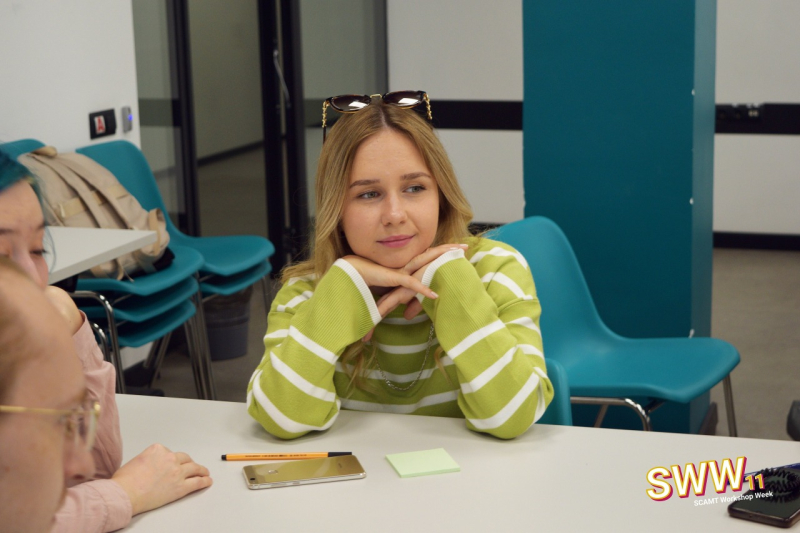
Sofia Dmitrienko. Photo by Yulia Nagovitsyna
Coming to SWW, I was curious to learn more about SCAMT and its projects – and I wasn’t disappointed: we worked at the lab, studied business, and got to talk to a successful startup founder. I know that I will definitely use everything I’ve learned here in my own startup.
